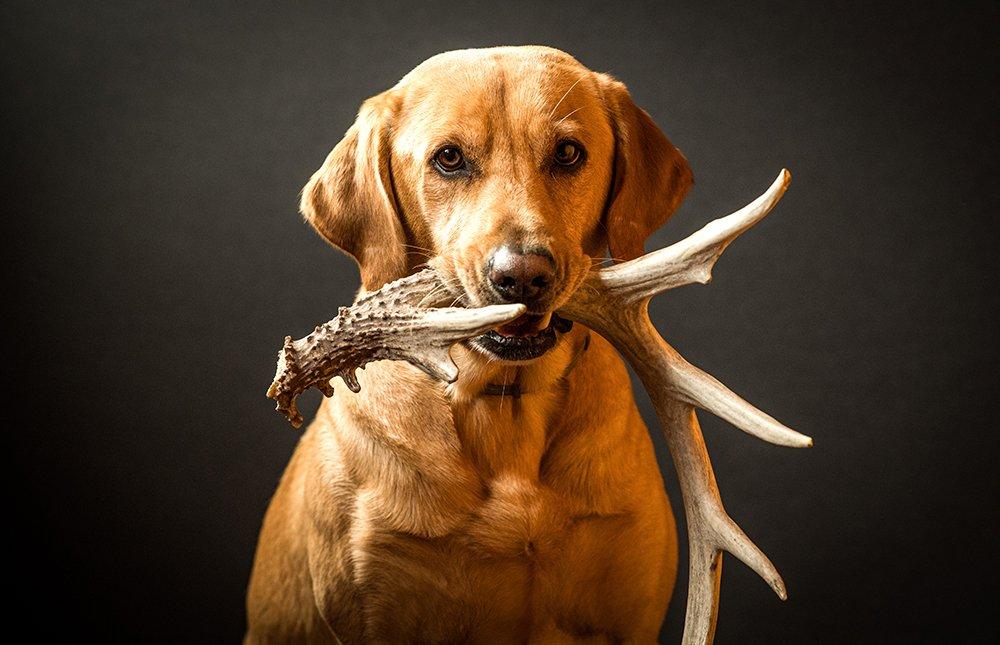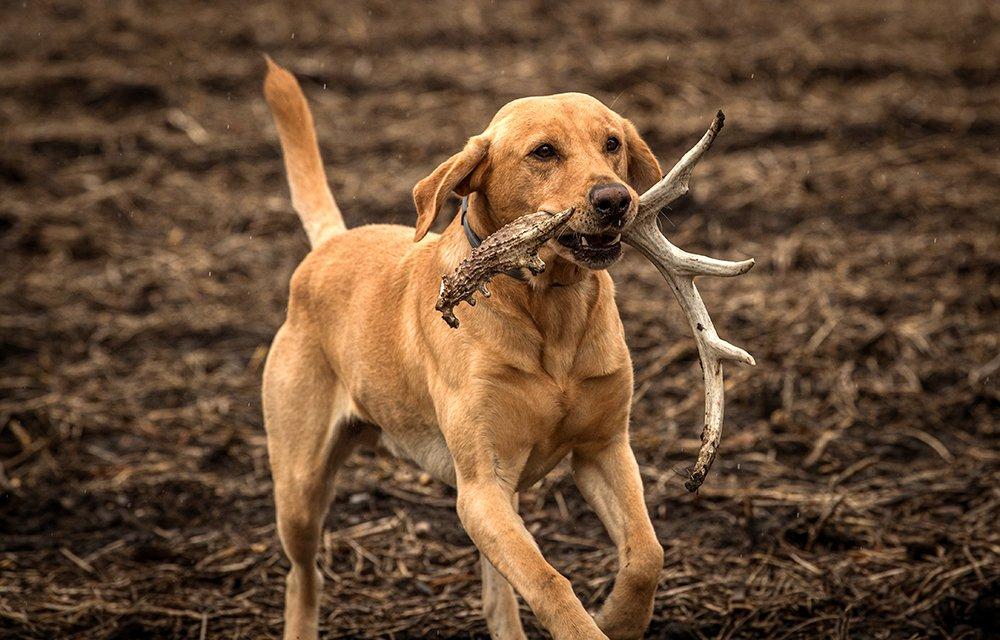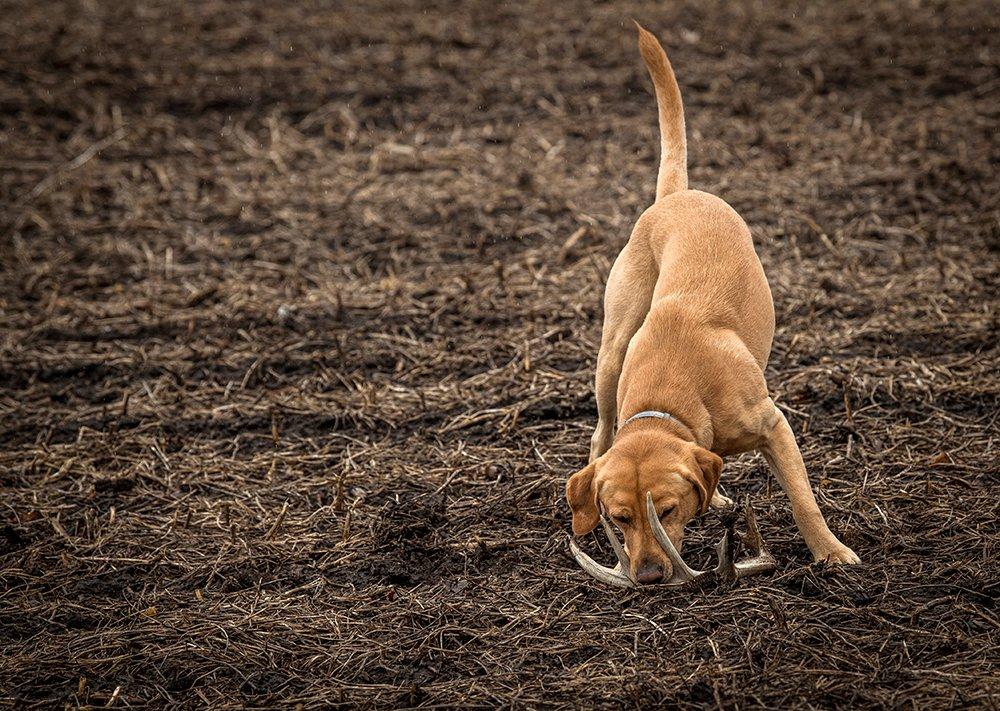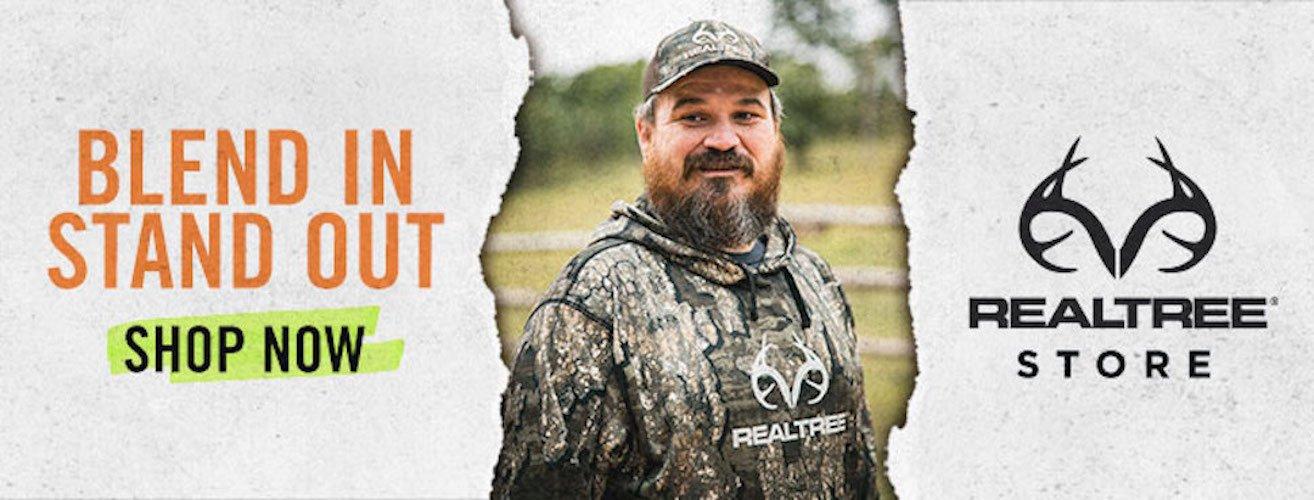A pro trainer weighs in on the traits you should look for in an antler-finding dog
At the beginning of every shed hunting season, I always imagine the treasure trove of deer antlers I will find. Then, reality sets in. I end up with a few good antlers, a bunch of dinks, and some weird stuff. This year, I found a ram's horn. Last year, it was a toilet seat. At the end of it all, I always think about what a good year it would've been if I'd just gotten a dang antler dog.
That sparked a conversation with Dog Bone's Jeremy Moore about the best dog breeds for shed hunters. I don't know if there is such a thing, Moore says. I think it depends completely on matching you with the right dog. It's a stylistic and preference thing more than anything.
So, if you were hoping for a definitive list of the top 10 shed hunting breeds, this isn't it. The good news is, you have a real chance of getting the dog you already have - or the one you want - to start finding antlers. Here's what to think about.
(Don't Miss: Really, How Old is that Buck?)
Nature vs. Nurture
All dogs have noses good enough to smell antlers. The number of olfactory receptors that a certain breed has isn't as important as its other qualities - like retrieving. That's not to say sniffing, pointing and flushing dogs can't make good shed dogs, but the specific traits bred into them aren't as necessary for this activity. Therefore, dogs that naturally retrieve have a considerable advantage.
Natural retrieval is really desirable, Moore says. I'm a fan of minimizing what has to happen there. I hate having to train stuff into a dog that I shouldn't have to. Any sporting dog has the tools to do it.
If you end up with a dog breed that doesn't naturally retrieve, Moore encourages using tennis balls to teach this discipline. He says he can get almost any dog to chase one. Just pour a little of Dog Bone's Liquid Scent on it and get after it. Once they take to bringing back the ball, graduate to a soft (not hard) synthetic antler.
The Best Breeds
While we don't have an official ranked list for you, Moore does have a list of his favorite breeds for the job. He says the best dogs aren't trained to use their nose, or to retrieve. We bring it out of them. It's in them naturally, Moore says. We shape it to match what we want.
If you don't already have a dog and want a shed-specific pup, consider these breeds. Moore's list includes Labrador retrievers, golden retrievers, German shepherds, Malinois (Belgium shepherds), English setters, beagles, German wirehaired pointers and bloodhounds. According to him, they exhibit the best natural traits, trainability, personality and intelligence.
- Retrievers: Labrador retrievers are solid choices. Labs are obviously the most common, but it's because there are more of them, Moore says. They're very versatile - perhaps the most of all. Moore also likes golden retrievers and describes them as long-haired labs. They have great retrieving skills, good noses and awesome personalities.
- Setters and Pointers: Commonly used as bird dogs, English setters and German wirehaired pointers both do well as antler dogs. Even if their pointing and flushing skills aren't applicable, they have adequate noses and excel at retrieving.
- Trailers: The last grouping of his favorite dogs are search animals with some of the best noses in the canine world. Beagles have 225 million olfactory receptors. German shepherds and Malinois (Belgium shepherds) have 250 million, and the bloodhound is the king sniffer with 300 million. (Compare that to a human's paltry 5 million.) These dogs excel at finding sheds, but aren't innate retrievers.
- Other Breeds: American foxhounds, Chesapeake Bay retrievers, German shorthair pointers, Weimaraners and other breeds can make good antler dogs, and are commonly touted as such. But Moore doesn't get as excited about those. He says Chesapeakes are more independent and harder to handle, and GSPs and Weimaraners don't fit his own personality. Some other breeds - such as American foxhounds - he just doesn't have experience with. While these breeds aren't his favorites, Moore says they likely still have the tools to get the job done.
Any Dog Will Do
Breeds aside, Moore believes the best dog for shed hunting is probably the one you already have.
I don't think it makes sense to go get a new dog to do this, he says. If you have a hunting dog of any sort, and you're thinking about shed hunting, one-hundred percent start with the dog you have. The question is how successful you are with it, and that comes back to the skillsets the dog already has.
Don't worry about ruining that prize-winning upland bird, waterfowl, rabbit or field-trial dog. Training them to shed hunt only creates more value, and it won't detract from what they already do. It's not the same as teaching a coon dog to run deer or a rabbit dog to tree a squirrel. If taught properly, your dog will learn to find white gold.
I think it has to do with matching the right style of dog to the right style of training, Moore says. For shed hunting, retrieving and trainability are the most valuable traits in dogs. You want a dog with a willingness to please, and intelligence is more important than anything.
While we aren't going to cover how to train a dog in this article, you should make sure your dog has a good obedience foundation first.
Regardless if it's a puppy or older dog, just don't go straight into shed training. You'll fall flat on your face, Moore says. It takes a really solid foundation first, then shed training. I use the same method to teach the foundation, regardless of the breed. Then my shed hunting training programs vary based on breed.
(Don't Miss: How to Protect Your Hunting Spots)
My Shed Dog Plans
Personally, I plan to purchase a shed hunting dog by the end of the year. My goal is to teach it to shed hunt and, in time, maybe even recover deer. Of course, I'll have to educate myself before I can do either.
And I still haven't decided on a breed. It will likely be a Lab, but I haven't ruled out a golden retriever, German shepherd or bloodhound. I'm not an expert dog trainer, so the Lab and golden retriever's innate retrieving skills are attractive to me. The noses of shepherds and bloodhounds are unmatched, however, and likely better at sniffing out both antlers and dead deer.
But as Moore says, even little dogs like Yorkies have a nose for sheds. So, while I'll have to remove the hair bows and dog sweaters before we head afield, maybe there's hope for my wife's cat-sized Maltipoo after all. Her name? Buttercup.
Don't Miss: How to Shed Hunt











